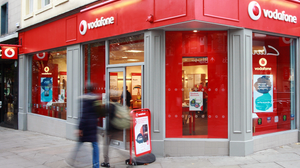The great handset downturn
The weak handset market might be a good time to defocus from consumer 5G. Not only is demand soft, there is little in the device pipeline to excite take-up.

Handset sales are tanking everywhere, the Q2 numbers confirm.
Counterpoint Research says global shipments dropped 9% year-on-year, with the uncertainties of the Ukraine war exacerbating problems caused by chip shortages and the lingering Covid-19 impacts.
IDC recorded an 8.7% fall in sales, the fourth consecutive quarterly drop.
Figure 1:  The weak handset market might be a good time to defocus a little away from consumer 5G.
The weak handset market might be a good time to defocus a little away from consumer 5G.
(Source: Philipp Dimitri/Westend61 GmbH/Alamy Stock Photo)
It's been a head spinning first half of the year. As Nabila Popal, head of IDC's handset research team, describes it, the sector pivoted from supply-constrained to demand-constrained.
"While supply improved as capacity and production was ramped up, roaring inflation and economic uncertainty has seriously dampened consumer spending and increased inventory across all regions," she said.
The full-year outlook "will definitely be revised down a few points," she said. But she's not totally pessimistic – any fall in sales today "is not demand that is lost, but simply pushed forward."
The China factor
Omdia numbers had a much smaller decline – down 3.2% year-on-year and 4.6% sequentially – but it said the China factor weighed heavily.
Big China OEMs had recorded "double-digit negative growth," leading to a decline in global shipments, it found.
According to Counterpoint, China domestic sales were down 14% year-on-year, hitting "a new low." It said Q2 shipments were even 13% below their pandemic low in 2020 and are now below half their peak in 2016.
Counterpoint senior analyst Ivan Lam said numbers were likely to rebound in the third quarter from the low of Q2.
"At the same time, with the demand continuing to be underwhelming due to weak consumer sentiment and lack of new innovations, it is going to be very hard to make the situation better in the second half when compared to last year."
Want to know more? Sign up to get our dedicated newsletters direct to your inbox.
As for the global market, Counterpoint predicts: "A pessimistic economic growth outlook with many countries on the brink of recession, ongoing and prolonged geopolitical uncertainty, rising commodity prices and weakening consumer demand for tech products are all impediments to the smartphone industry's post-COVID recovery."
So, a challenging period ahead for telcos, like everyone else, although, of course, most operators have been managing for low-growth for years.
The weak handset market might be a good time to defocus a little away from consumer 5G. Not only is demand soft, but there is also little in the device pipeline to excite take-up.
Instead, more resources should be put into the enterprise and cloud. A core part of the promise of enterprise 5G is as an enabler of digital transformation, and there's no shortage of experts calling on businesses to double down on transformation to cope with inflation and lower growth. Transformation can shake out a lot of internal costs and equip companies for the upturn.
Crisis equals opportunity. Even a slump offers some paths to growth.
Related posts:
— Robert Clark, contributing editor, special to Light Reading
Read more about:
AsiaAbout the Author(s)
You May Also Like












